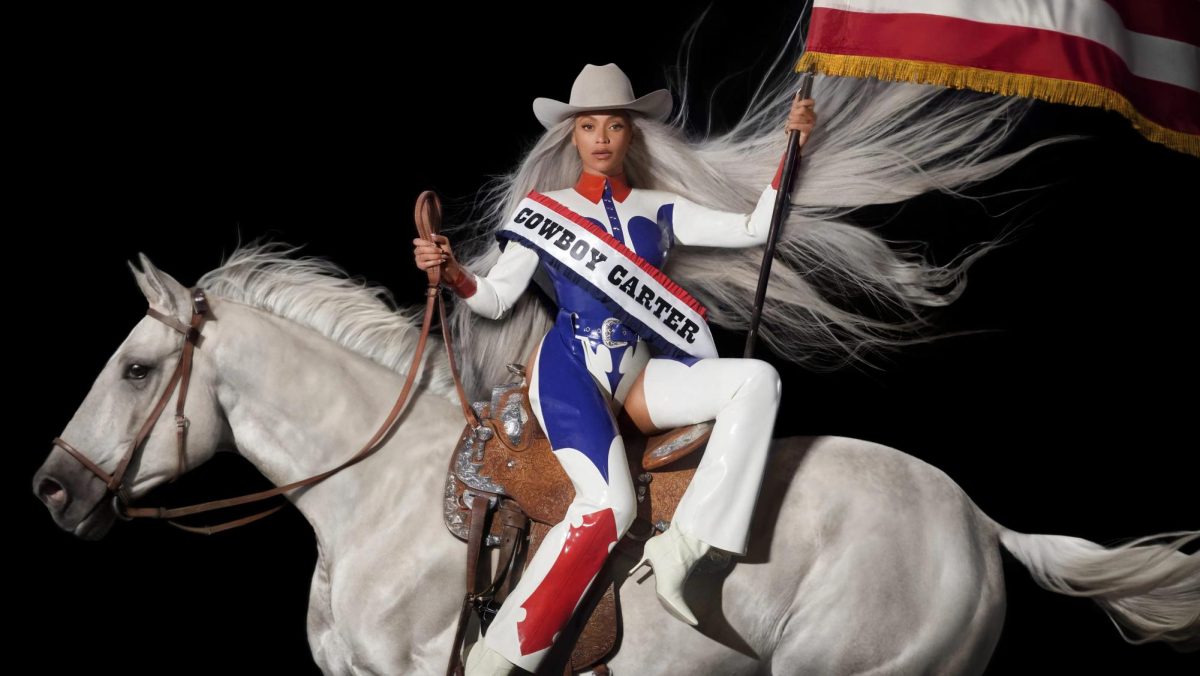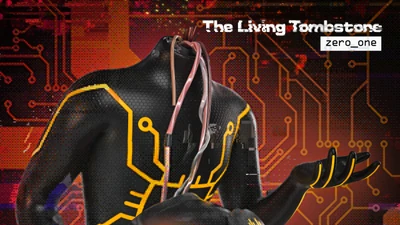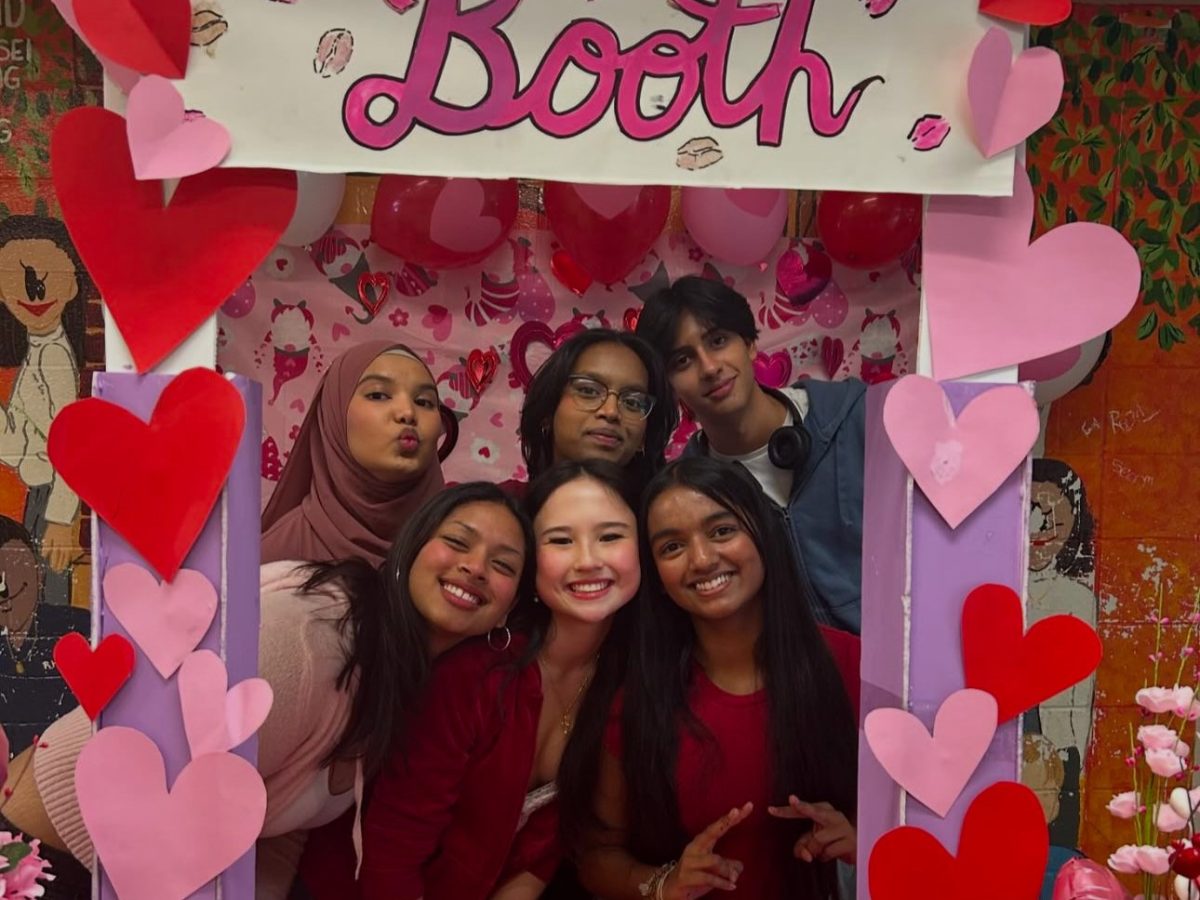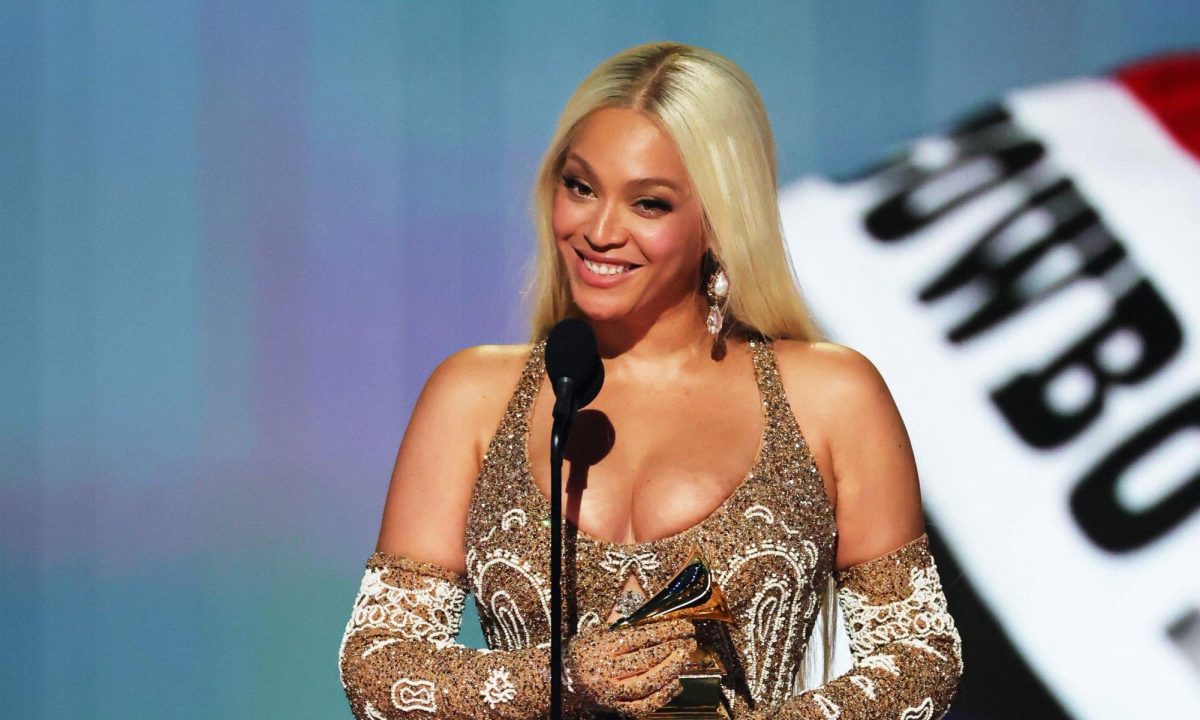On March 29, Beyoncé released a new album called COWBOY CARTER. She described the new record as “act ii” in a trilogy that started with her 2022 album, RENAISSANCE, a club music and disco-inspired album. But, this album is a stark shift from Beyoncé’s past music as she dives into the modern Americana and country soundscape.
The album features country icons like Dolly Parton, Linda Martell and Willie Nelson with covers of The Beatles’ “Blackbird,” Chuck Berry’s “Oh Louisiana” and a reimagined version of Parton’s “Jolene.” The album also features modern mainstream artists such as Miley Cyrus and Post Malone, among others.
Ballads of youth and motherhood like “16 CARRIAGES” and“PROTECTOR” give the album a deeply personal touch using classic country themes. They are slow and delicate – entirely different than the dance-pop of RENAISSANCE. But, make no mistake, Beyoncé is still the same woman. She maintains her “don’t mess with me” attitude on her cover of “Jolene.” Beyoncé changes the song from a beg for mercy to a stern warning, altering original lyrics like “I’m begging of you, please don’t take my man” to “I’m warning you, woman, find you your own man.”
In “YA YA,” Beyoncé looks at the state of America, singing, “Whole lotta red in that white and blue, huh.” This seems to allude to the violence – like police brutality and mass shootings – that paints American news headlines. All the while, she “pray[s] that we don’t crash.” Behind the energetic beats, Beyoncé is tackling some of the biggest issues that face America today.
In the album’s opener, “AMERIICAN REQUIEM,” Beyoncé also explores her identity and her place in country music. She sings, “Got folk down in Galveston, rooted in Louisiana / Used to say I spoke too country / And the rejection came, said I wasn’t country ‘nough / Said I wouldn’t saddle up, but /If that ain’t country, tell me what is?”.
The artist shared on Instagram that this new album was “born out of an experience that [she] had years ago where [she] did not feel welcomed…and it was very clear that [she] wasn’t.” This seems to be a reference to the 2016 Country Music Awards where Benyoncé received backlash following her performance. The announcement of Beyoncé’s dive into country for this album also came with some backlash. Both of these incidents seem to be, at least in part, because Beyoncé does not fit the image of the traditional country musician – it is no secret that the white-dominated country music scene is often exclusionary racialized artists. Most of this criticism, however, seems to ignore the fact that country music owes its history to Black musicians and that Beyconcé grew up in Texas and has familial ties to Louisiana. But, as Beyoncé herself said, “This ain’t a Country album. This is a ‘Beyoncé’ album.”
Part of the triumph of this album is that it is not one, definable thing. Despite what the title (along with the horse, cowboy attire and American flag on the cover) may have you believe, this album is just not a pop-star-turned-country conversion. Beyoncé is not simply trading in a synthesizer for a banjo, she is exploring Americana as a whole: her place in it and beyond.
This is a testament to Beyoncé’s strength and talent as an artist – with this album, if you weren’t convinced already, she proves she is an unstoppable, unbeatable force in music, regardless of genre. This album represents an important and elusive piece of the music world: COWBOY CARTER is music that thinks and breathes, music that stands on its own. The album is ambitious but wildly successful. It is experimental, yet refined and sure of itself. It is entirely new and, also, so characteristically Beyconcé. COWBOY CARTER is music at its finest.








